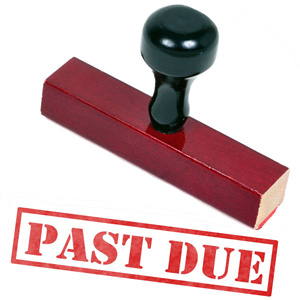Common Mistakes of the Unwary Contractor

In order to get around the stringent requirements of New Jersey’s Construction Lien Law, many contractors/vendors resort to ill-advised tactics in an effort to stretch their lien rights. Some examples are:
- Intentionally holding back on insignificant items at the end of the job to extend that “last date” on which good and services were provided to the job;
- Returning to the jobsite to address some corrective work or punch-list items in an effort to reset the “last date” clock; ;
- Agreeing to forgo pursuing lien rights if the client will agree to waive its right to assert a defense that the lien claim is invalid because it was untimely; or
- Agreeing to forgo filing a NUB and/or lien claim for services provided and unpaid if the client will extend the “last date” by contracting for additional goods or services to the same property.
Despite these all-to-common tactics, in most cases such designs will be fatal to a contractor/vendor valid lien claim if carefully reviewed by a court strictly adhering to the plain language of the statute. The plain language of the statute makes compliance with each and every provision mandatory, and does not provide for the ability of any party to waive any of the requirements therein. Thus, even if the client agrees to waive the defense of timeliness, or agrees to extend or enter into another contract for additional services to extend the “last date” count-down, the court may likely decide, sua sponte (i.e. on its own) that the lien claim is untimely and invalid.
This strict application of the statutory timeframes of New Jersey’s Construction Lien Law is important to protect property owners, both current and future, from surprise claims. For instance, in the case of a general contractor who, unbeknownst to the property owner, fails to pay his subcontractors and vendors to build the property owner’s home. Having paid the general contractor, in full, upon receipt of the certificate of occupancy for the home, the property owner is then served with a NUB filed by the mason who completed the footing and foundation six (6) months earlier. The mason’s lien rights against the property for non-payment of the footing and foundation work is not likely to be preserved because the general contractor agreed to award the mason a new contract to install the driveway in an effort to extend the “last date” the mason performed work at the property. Moreover, the property owner’s first defense to such a claim would be the failure by the mason to file its claim for the footing and foundation work in accordance with the statute. Any agreement entered into between the general contractor and the mason will not impact the property owner’s statutory rights and the mason will likely have to bring a lawsuit against the general contractor without the leverage of a valid lien claim against the property.
Additionally, the construction lien statute provides for a contractor/vendor right to amend a lien claim in the event partial payment is received from the client, or additional invoices for goods or services provided to the property go unpaid. Arguably, this ability to amend the lien claim stems from the fact that the lien rights established through providing goods and/or services for the improvement of property stand-alone based upon the parties’ contract for those goods and services. Thus, if ABC Corp. was retained to provide lumber for the construction of a house, its lien claim rights begin to expire on the last date the lumber for the house is delivered and that contract is fulfilled. If ABC Corp. is later retained, under separate contract or purchase order, to provide landscaping materials for the front and back yards of the same house, this new contract does not result in an extension of ABC Corp.’s lien rights against the property in the event the client does not pay for the lumber.
In sum, the New Jersey Construction Lien Law is a contractor/vendor’s best leverage in ensuring payment for the goods and services it provides for the improvement of real property. However, strict compliance with the statutory procedures required to preserve that leverage is critical.
If you need assistance to ensure you are paid for the goods and/or services you have provided for the improvement of real property, or if you need assistance in defending against a construction lien claim, please contact Kelly Law, P.C.
